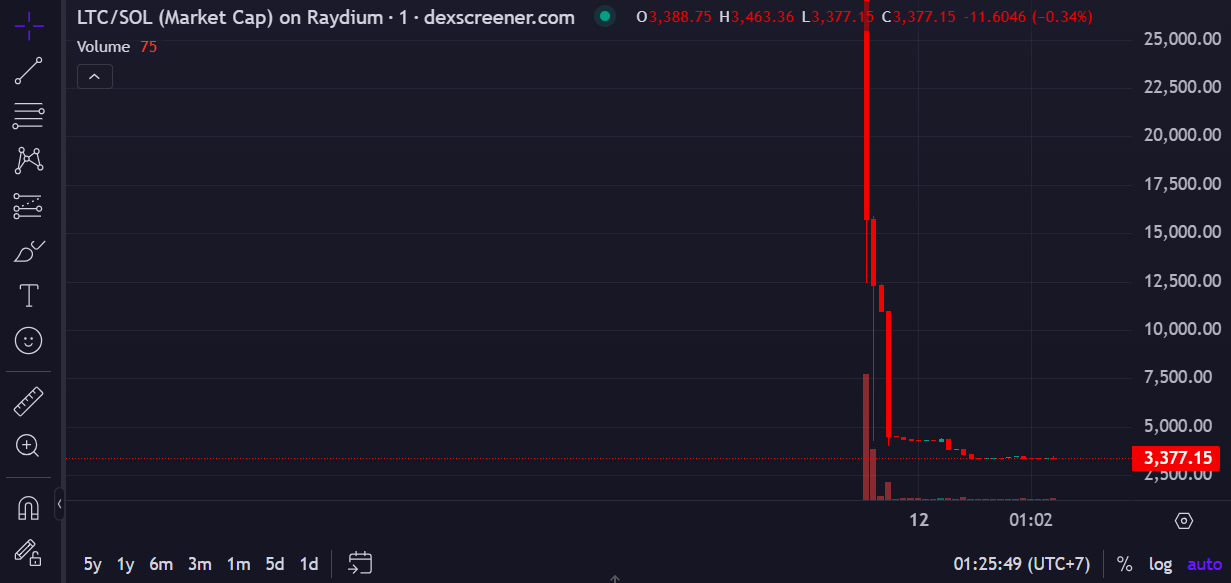
Litecoin’s X account hacked to promote fake Solana LTC token
Hacking social media accounts to push fake projects is a common tactic among cybercriminals.
The official X account of Litecoin appeared to have been compromised earlier today, according to numerous reports from crypto community members. The hacker used it to promote a fraudulent Solana-based token sharing the same LTC ticker as the legitimate digital asset.
Did @litecoin just rug pull everyone????? pic.twitter.com/YNlE4TszOl
— Alpha Bets 👑 (@Alpha69Bets) January 11, 2025
The unauthorized post, which included a Solana contract address for the fake Litecoin token, briefly drove the scam token’s market capitalization to $27,000 before it plunged to $3,400, per DEX Screener. The tweet was subsequently removed.

“Be cautious [about] any tweets coming from this account until the team confirms they have regained full access to the account,” warned a user.
In a recent statement, Litecoin confirmed that its account was hacked and investigations are still underway. The team reported having found and removed a delegated account that was targeted by the hacker.
Litecoin's X account was briefly compromised today and posts that were not authorized were published. These were live only for a matter of seconds before being deleted. We're still investigating the issue, but immediately found a delegated account that was compromised and removed…
— Litecoin (@litecoin) January 11, 2025
The incident follows a pattern of social media account compromises targeting high-profile crypto projects and individuals. In December, similar attacks hit the Cardano Foundation’s X account, which was used to spread false information about a nonexistent SEC lawsuit and promote a fraudulent Solana-related token.
Blockchain investigator ZachXBT reported that between late November and December, a single threat actor accumulated approximately $500,000 through meme coin scams launched via more than 15 compromised X accounts, including Kick, Cursor, Alex Blania, The Arena, and Brett.
The investigator also identified a common attack vector where hackers send phishing emails disguised as X team communications about copyright infringement, attempting to trick users into visiting fraudulent sites to reset their two-factor authentication and passwords.

 Earn with Nexo
Earn with Nexo